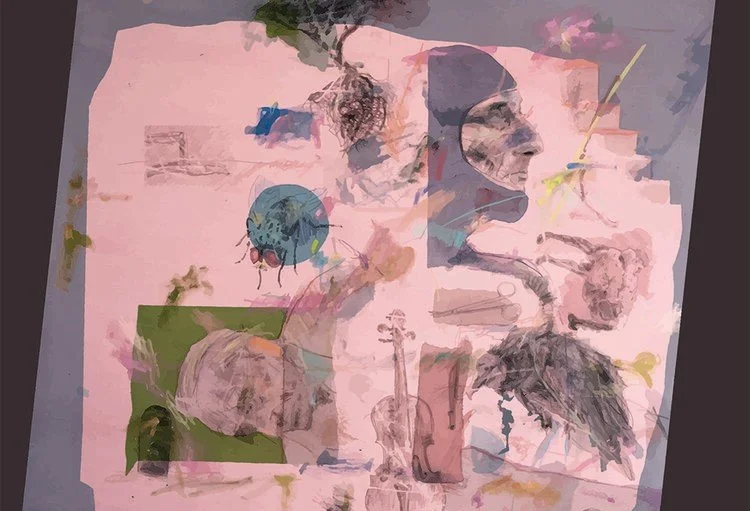Katabasis [E-Book]
Katabasis [E-Book]
Formats: E-Pub, PDF
110 pages.
Author: Lucía Estrada
Translator: Olivia Lott
Lucía Estrada’s Katabasis, finalist for the 2020 PEN Poetry in Translation Prize and winner of the 2017 Bogotá Poetry Prize, is the first full collection of poetry by a Colombian woman to be translated into English. It takes its title from the Greek word for descent, referring to both classical knowledge quests into the underworld by epic heroes and, more broadly, to any journey into madness, darkness, and the unknown. Olivia Lott’s seminal translation tracks the mercurial tempos and intertextualities of the poems, as it captures the double valence of political dissent and katabatic descent. This book reminds us that darkness is a space of enlightenment.
Print Edition
Praise for Katabasis
“Katabasis’s descent into dissent gives us ‘a reason to move through the world’: Dissent from imperialist and neo-colonialist notions of Colombia and its literature, dissent from the Latin American poetry in translation canon, dissent from the translator’s invisibility. This impressive book of firsts is exactly the kind of translation work I’m most interested in. It is poetry after my own heart.”
“Lucía Estrada’s poetry does not conform to any of the preexisting models in Colombian poetry. In her quest, the poet runs away from historical referentiality and the many theaters of the self to propose a poetics of uprooting. But to pull oneself out of time and space in this writing means to settle within language as primary scene, to embrace myth and descend into an inaugural night where the word is its own and only surroundings.
Estrada’s poetry is translucent, as though writing were not about using language but traversing it. In her letting go words are emptied of unnecessary weight. Katabasis is the motion by which the poet rids herself of her anchors and embarks on a descent into the depths of night, its veil of penumbra that amounts to all things. Night—liberated, cosmic expanse of shadows—transforms into an occasion for bodies, now without memory or longing, to dock at the nowness of language, the one place of limitlessness.”
“Lucía Estrada numbers among a group of celebrated Latin American women poets who unrelentingly explore the darkest crannies of the imagination and the intellect, including Marosa di Giorgio, Reina María Rodríguez, and Blanca Varela. These probingly psychological yet profoundly lyrical poems recall the writing of Gabriela Mistral, Olga Orozco, Alejandra Pizarnik. Estrada’s poetry, which emerges from Colombia’s decades-long armed conflict, is shadowy, subaquatic, yet razor-sharp. Olivia Lott’s impressive, sophisticated translations are an event unto themselves for their lyrical luminosity and their memorable musicality: ‘Silence that trails the crash, war cry, tempest; it mixes up with mine, white, shaky. But who says I take place in the world?’ Wake up, readers, Estrada has arrived on this shore! ‘Listen, something in this scream is for you.’”
About the Author
Lucía Estrada (Medellín, Colombia, 1980) is the author of ten books of poetry including the award-winning collections Las Hijas del Espino (2006) and La noche en el espejo (2010). She is the two-time recipient of the Bogotá Poetry Prize, most recently in 2017 for Katábasis, which was also named a finalist for the 2019 Colombian National Poetry Prize. Estrada has been invited to participate in many international literary events and, for several years, she helped to organize the groundbreaking Medellín International Poetry Festival. Her work has appeared in numerous anthologies in and beyond Latin America and has been partially translated into English, French, German, Greek, Italian, Japanese, Portuguese, and Swedish. Estrada is currently the Cultural Coordinator at the Corporación Otraparte in Medellín.
About the Translator
Olivia Lott is a translator and scholar of Latin American poetry. Her translations and writing on translation have most recently appeared in The Arkansas International, Brooklyn Rail In Translation, Burning House, Kenyon Review, MAKE Magazine, Reading in Translation, Waxwing, and World Literature Today. She is the co-translator of Soleida Ríos’s The Dirty Text (Kenning Editions, 2018) and the curator of the monthly feature Poesía en acción on the Action Books blog. Lott is ABD in Hispanic Studies and an Olin Fellow at Washington University in St. Louis, where she is writing a dissertation on 1960s neo-avant-garde poetics in Latin America.

